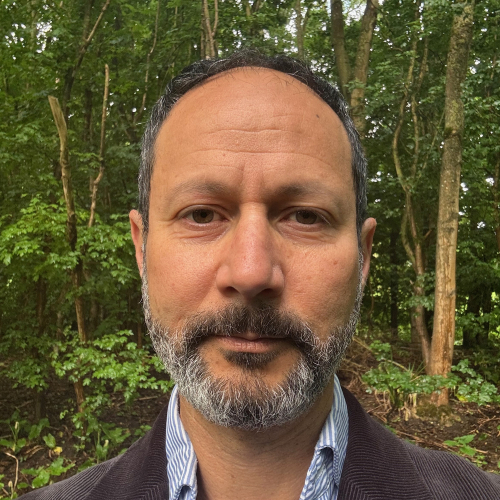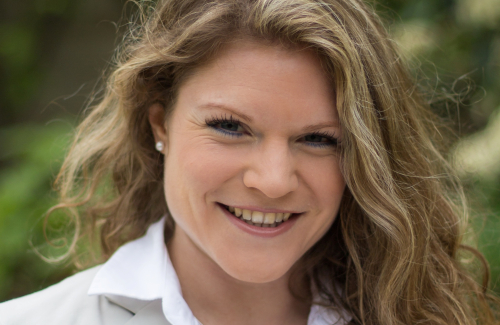
Professor Guy Kahane
I am a moral philosopher who works on a wide range of questions in ethics. I am especially interested in what makes lives good or meaningful, and in questions about the value and significance of the world as a whole. In applied ethics, I have worked on the ethics of transformative technology. I have also collaborated with neuroscientists and psychologists to study what happens in our brains when we face moral dilemmas,
I have published well over 100 articles. The questions I have tried to address include:
- Does our individuality matter or would it be just fine if we were all alike?
- If someone spends the rest of their lives in virtual reality, could their life be as good as life in the physical world?
- Should we be glad that the evolutionary process ultimately led to us humans, even if that required a huge amount of animal suffering over many millions of years?
- Is our universe indifferent, and if so, should we care?
- Does it matter whether anything matters?
- Should we want God to exist?
- Does the fact the universe is so vast show that humanity is insignificant on the grand scale of things?
- What brain processes are engaged when we think about trolley problems, and what can that tell us about ethics?
- Can we measure the extent to which people approach moral questions in a more or less utilitarian way?
- Why do most people believe that humans matter more than animals, and how do such ‘speciesist’ views develop over childhood and adolescence?
In Pembroke, I typically teach the Moral Philosophy (Mill’s Utilitarianism) module for first year students, as well as the Ethics, Practical Ethics, Philosophy of Mind, Philosophy of Cognitive Science, and Wittgenstein modules.
I am also the course director of the MSt in Practical Ethics, a course that offers advanced training in applied ethics to people from a wide range of professional backgrounds. This course is led by the Uehiro Oxford Institute, a research institute devoted to interdisciplinary research in applied ethics. In the past, I was an associate editor of The Journal of Medical Ethics, and The Journal of Practical Ethics.
I did my graduate studies at Oxford—completing a Masters (BPhil) and then PhD (DPhil) here. I have been here ever since, starting with a postdoctoral position at the Oxford Uehiro Centre for Practical Ethics. While my graduate work focused on more theoretical and ‘meta-ethical’ issues, while at the Uehiro Centre I also begun work in applied ethics as well as developed a wide range of interdisciplinary collaborations in moral psychology. I was the Uehiro Centre’s Deputy Director from 2006 to 2017, when I became the Course Director for the new MSt graduate course, and the Uehiro Centre’s Director of Studies. I received a 5-year University Award in Biomedical Ethics from the Wellcome Trust in 2009, and joined Pembroke, first as Research Fellow, and then as Fellow and Tutor, once I have completed this large research project. Before that, I was also a Junior Research Fellow at Somerville College for several years.
I have edited two books and published nearly 100 articles. These include:
ETHICS
Kahane, G. and Savulescu, J. 2009. ‘Brain-Damage and the Moral Significance of Consciousness’, The Journal of Medicine and Philosophy.
Kahane, G., and Savulescu, J. 2009. ‘The Welfarist Account of Disability’, in K. Brownlee and A. Cureton, eds., Disability and Disadvantage, Oxford University Press.
Kahane, G. 2011. ‘Evolutionary Debunking Arguments’, Noûs.
Kahane, G. 2011. ‘Should We Want God to Exist?’ Philosophy and Phenomenological Research.
Kahane, G. 2011. ‘Mastery Without Mystery: Why there is no Promethean Sin in Enhancement’, The Journal of Applied Philosophy.
Kahane, G. 2014. ‘Our Cosmic Insignificance’, Noûs.
Kahane, G. 2017. ‘If Nothing Matters’, Noûs.
Kahane, G. 2019. ‘History and Persons’, Philosophy and Phenomenological Research.
Savulescu, J. Kahane, G. and Gyngell, C., 2019. ‘From Public Preferences to Ethical Policy’, Nature: Human Behaviour.
Kahane, G. 2021. ‘Is the Universe Indifferent? Should We Care?’, Philosophy and Phenomenological Research.
Kahane, G. ‘Meaningfulness and Importance’ forthcoming in Landau, I., ed., The Oxford Handbook of Meaning in Life, OUP.
MORAL PSYCHOLOGY/NEUROSCIENCE
Kahane, G., Wiech, K., Shackel, N., Farias, M., Savulescu J. and Tracey, I. 2012. ‘The Neural Basis of Intuitive and Counterintuitive Moral Judgement’, Social, Cognitive and Affective Neuroscience.
Kahane, G., Everett, J., Earp, B., Farias, M. and Savulescu, J., 2015. ‘‘Utilitarian’ Judgment in Sacrificial Dilemmas Does Not Reflect Impartial Concern for the Greater Good’.
Kahane, G., Everett, J., Earp, B., Caviola, L., Faber, N., Crockett, M., Savulescu, J. 2018. ‘Beyond Sacrificial Harm: A Two-Dimensional Model of Utilitarian Psychology’, Psychological Review.
Kahane, G. 2016. ‘Is, Ought, and the Brain’, in S. M. Liao, ed., Moral Brains: The Neuroscience of Morality, Oxford: Oxford University Press.
Demaree-Cotton, J. and Kahane, G. 2019. ‘The Neuroscience of Moral Judgment’, in A. Zimmerman, K. Jones, and M. Timmons, eds., The Routledge Handbook on Moral Epistemology.
Everett, J. and Kahane, G. 2020. ‘Switching Tracks: A Multi-Dimensional Model of Utilitarian Psychology’, Trends in Cognitive Sciences.
Wilks, M., Caviola, L., Kahane, G., Bloom, P. 2021. ‘Children Prioritize Humans Over Animals Less Than Adults Do’, Psychological Science.
Caviola, L., Kahane, G., Everett, J., Teperman, E., Savulescu, J., and Faber, N. 2021. ‘Utilitarianism for Animals, Kantianism for People? Harming Animals and Humans for the Greater Good’, the Journal of Experimental Psychology: General.
Professor Guy Kahane

I am a moral philosopher who works on a wide range of questions in ethics. I am especially interested in what makes lives good or meaningful, and in questions about the value and significance of the world as a whole. In applied ethics, I have worked on the ethics of transformative technology. I have also collaborated with neuroscientists and psychologists to study what happens in our brains when we face moral dilemmas,
I have published well over 100 articles. The questions I have tried to address include:
- Does our individuality matter or would it be just fine if we were all alike?
- If someone spends the rest of their lives in virtual reality, could their life be as good as life in the physical world?
- Should we be glad that the evolutionary process ultimately led to us humans, even if that required a huge amount of animal suffering over many millions of years?
- Is our universe indifferent, and if so, should we care?
- Does it matter whether anything matters?
- Should we want God to exist?
- Does the fact the universe is so vast show that humanity is insignificant on the grand scale of things?
- What brain processes are engaged when we think about trolley problems, and what can that tell us about ethics?
- Can we measure the extent to which people approach moral questions in a more or less utilitarian way?
- Why do most people believe that humans matter more than animals, and how do such ‘speciesist’ views develop over childhood and adolescence?
In Pembroke, I typically teach the Moral Philosophy (Mill’s Utilitarianism) module for first year students, as well as the Ethics, Practical Ethics, Philosophy of Mind, Philosophy of Cognitive Science, and Wittgenstein modules.
I am also the course director of the MSt in Practical Ethics, a course that offers advanced training in applied ethics to people from a wide range of professional backgrounds. This course is led by the Uehiro Oxford Institute, a research institute devoted to interdisciplinary research in applied ethics. In the past, I was an associate editor of The Journal of Medical Ethics, and The Journal of Practical Ethics.
I did my graduate studies at Oxford—completing a Masters (BPhil) and then PhD (DPhil) here. I have been here ever since, starting with a postdoctoral position at the Oxford Uehiro Centre for Practical Ethics. While my graduate work focused on more theoretical and ‘meta-ethical’ issues, while at the Uehiro Centre I also begun work in applied ethics as well as developed a wide range of interdisciplinary collaborations in moral psychology. I was the Uehiro Centre’s Deputy Director from 2006 to 2017, when I became the Course Director for the new MSt graduate course, and the Uehiro Centre’s Director of Studies. I received a 5-year University Award in Biomedical Ethics from the Wellcome Trust in 2009, and joined Pembroke, first as Research Fellow, and then as Fellow and Tutor, once I have completed this large research project. Before that, I was also a Junior Research Fellow at Somerville College for several years.
I have edited two books and published nearly 100 articles. These include:
ETHICS
Kahane, G. and Savulescu, J. 2009. ‘Brain-Damage and the Moral Significance of Consciousness’, The Journal of Medicine and Philosophy.
Kahane, G., and Savulescu, J. 2009. ‘The Welfarist Account of Disability’, in K. Brownlee and A. Cureton, eds., Disability and Disadvantage, Oxford University Press.
Kahane, G. 2011. ‘Evolutionary Debunking Arguments’, Noûs.
Kahane, G. 2011. ‘Should We Want God to Exist?’ Philosophy and Phenomenological Research.
Kahane, G. 2011. ‘Mastery Without Mystery: Why there is no Promethean Sin in Enhancement’, The Journal of Applied Philosophy.
Kahane, G. 2014. ‘Our Cosmic Insignificance’, Noûs.
Kahane, G. 2017. ‘If Nothing Matters’, Noûs.
Kahane, G. 2019. ‘History and Persons’, Philosophy and Phenomenological Research.
Savulescu, J. Kahane, G. and Gyngell, C., 2019. ‘From Public Preferences to Ethical Policy’, Nature: Human Behaviour.
Kahane, G. 2021. ‘Is the Universe Indifferent? Should We Care?’, Philosophy and Phenomenological Research.
Kahane, G. ‘Meaningfulness and Importance’ forthcoming in Landau, I., ed., The Oxford Handbook of Meaning in Life, OUP.
MORAL PSYCHOLOGY/NEUROSCIENCE
Kahane, G., Wiech, K., Shackel, N., Farias, M., Savulescu J. and Tracey, I. 2012. ‘The Neural Basis of Intuitive and Counterintuitive Moral Judgement’, Social, Cognitive and Affective Neuroscience.
Kahane, G., Everett, J., Earp, B., Farias, M. and Savulescu, J., 2015. ‘‘Utilitarian’ Judgment in Sacrificial Dilemmas Does Not Reflect Impartial Concern for the Greater Good’.
Kahane, G., Everett, J., Earp, B., Caviola, L., Faber, N., Crockett, M., Savulescu, J. 2018. ‘Beyond Sacrificial Harm: A Two-Dimensional Model of Utilitarian Psychology’, Psychological Review.
Kahane, G. 2016. ‘Is, Ought, and the Brain’, in S. M. Liao, ed., Moral Brains: The Neuroscience of Morality, Oxford: Oxford University Press.
Demaree-Cotton, J. and Kahane, G. 2019. ‘The Neuroscience of Moral Judgment’, in A. Zimmerman, K. Jones, and M. Timmons, eds., The Routledge Handbook on Moral Epistemology.
Everett, J. and Kahane, G. 2020. ‘Switching Tracks: A Multi-Dimensional Model of Utilitarian Psychology’, Trends in Cognitive Sciences.
Wilks, M., Caviola, L., Kahane, G., Bloom, P. 2021. ‘Children Prioritize Humans Over Animals Less Than Adults Do’, Psychological Science.
Caviola, L., Kahane, G., Everett, J., Teperman, E., Savulescu, J., and Faber, N. 2021. ‘Utilitarianism for Animals, Kantianism for People? Harming Animals and Humans for the Greater Good’, the Journal of Experimental Psychology: General.
